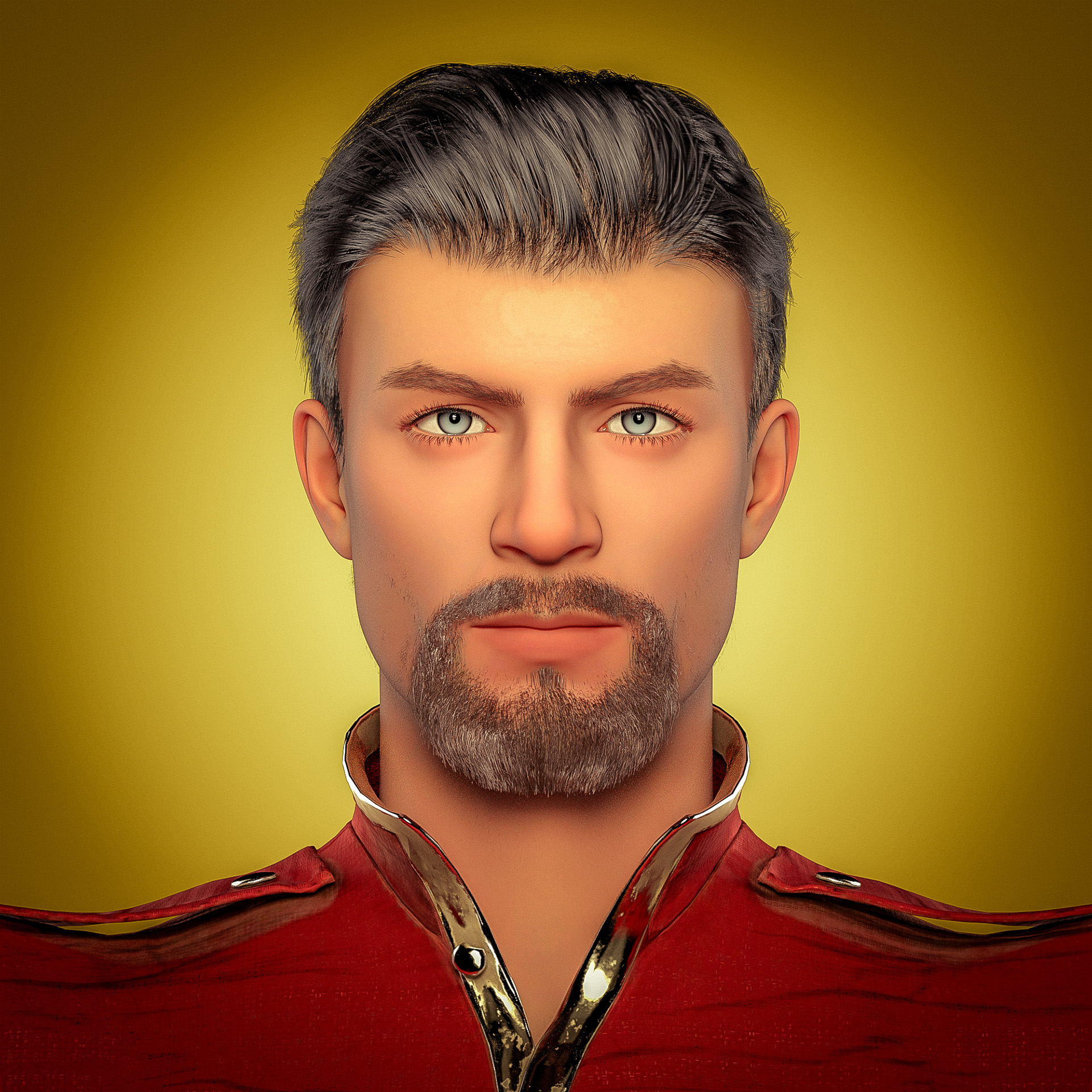Vladimir I
Vladimir I
Vladimir I, King of Motherland, was the first monarch of that place and one of the so-called False Kings. While he was not initially negligent or maniacal, a series of unfortunate setbacks for his kingdom led the well-intentioned Vladimir down a path toward madness. Beginning with the The Great Famine from 126–127 and continuing on through The Ordeal of the Yeti, Vladimir became convinced that the sister goddesses of Eden had spurned him and condemned him to a life of ill fortune. This culminated in his participation in the fiery conflict between the Seven Queens and the False Kings in 144, a conflict which would end with Vladimir’s violent demise.
Born Vladimir Mikhailovich Ivanov in 1885 of the Earth-666 iteration of reality, Vladimir fought in the disastrous Russo-Japanese War. He came home from that bloody conflict as a different man, a man with both physical and mental wounds that would never be healed. And though he tried to adjust to life back in his homeland, the factory job he took didn’t pay enough and there wasn’t enough food to go around, even if he’d had the money to pay for it. Add to that the fact that he witnessed his former comrades gunning down protesting workers in January 1905, and Vladimir felt determined to leave Russian for greener pastures.
It took him another seven years to save enough money for passage to America, but he kept the faith and eventually ended up an ocean liner steaming from London in April 1912—and the world’s first unsinkable vessel, to boot!
On April 14, when his ride struck an iceberg it wasn’t supposed to, a Calamity destroyed Vladimir’s reality so that the sister goddesses could rewrite reality to account for this new development. Vladimir, along with many others, survived the apocalypse and washed ashore on the beaches of Eden. And from there, he and his fellow False Kings developed their plan to use the native population’s belief in a prophecy to secure a place for humanity in this purgatorial paradise.
Vladimir was given control of the territory called Motherland and sought to do right what he had seen done so wrong in his homeland. In the beginning, Motherland was a worker’s paradise and a socialist utopia. But then, as one disaster after another struck the young country, Vladimir began to believe that only he could put things right. He grabbed more and more power from the council established to represent the people, and though sometimes it seemed as if his descent toward tyrrany was working, it really, really wasn’t.
The Great Famine and the subsequent Fight for the Field of Plenty were a perfect example of the teeter-tottering fortunes of the Motherlanders. The famine was caused, in large part, by the blight known as Cherno’s Curse—a supernatural terror visited upon the land because of Vladimir’s transgressions. But Vladimir’s defense of his people during the Fight for the Field of Plenty is what put an end to the famine, after all. Nowhere in Eden, it seemed, were the fortunes of a land and a people more tied to the emotional state and moral compass of a leader.
Vladimir would rule for twenty-seven years before abdicating in 141 and he was the most divisive of the rulers deposed as part of the The Great Abdication Movement. Some of his people, despite all of the misfortunes they’d lived through, still believed in the inherent good of King Vladimir and his army of wooden soldiers. And it wasn’t as if his son, Alexey I, inspired much confidence. It was only if you believed in Vladimir’s new daughter-in-law, the famed huntress Gretel der Jäger, that the king’s departure seemed like a good idea.
And that is perhaps why the return of the False Kings in 144 was centered upon taking the Motherlandian capital of Watersmeet. Many of the people there wanted Vladimir back anyway.





Comments